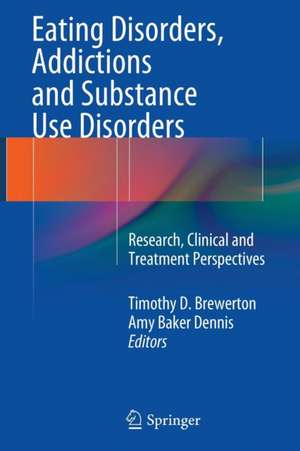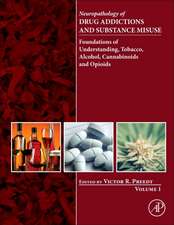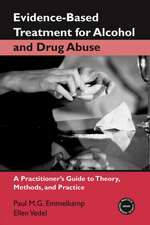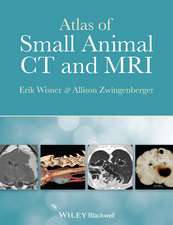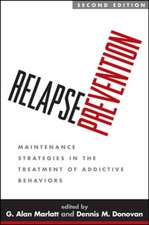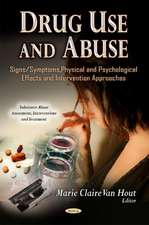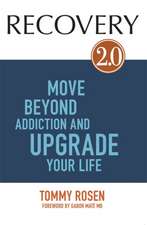Eating Disorders, Addictions and Substance Use Disorders: Research, Clinical and Treatment Perspectives
Editat de Timothy D. Brewerton, Amy Baker Dennisen Limba Engleză Paperback – 22 aug 2016
| Toate formatele și edițiile | Preț | Express |
|---|---|---|
| Paperback (1) | 1018.44 lei 3-5 săpt. | +45.66 lei 4-10 zile |
| Springer Berlin, Heidelberg – 22 aug 2016 | 1018.44 lei 3-5 săpt. | +45.66 lei 4-10 zile |
| Hardback (1) | 1643.41 lei 6-8 săpt. | |
| Springer Berlin, Heidelberg – 24 mar 2014 | 1643.41 lei 6-8 săpt. |
Preț: 1018.44 lei
Preț vechi: 1072.04 lei
-5% Nou
Puncte Express: 1528
Preț estimativ în valută:
194.87€ • 203.48$ • 160.92£
194.87€ • 203.48$ • 160.92£
Carte disponibilă
Livrare economică 25 martie-08 aprilie
Livrare express 08-14 martie pentru 55.65 lei
Preluare comenzi: 021 569.72.76
Specificații
ISBN-13: 9783662512142
ISBN-10: 3662512149
Pagini: 708
Ilustrații: XXV, 681 p. 6 illus., 2 illus. in color.
Dimensiuni: 155 x 235 x 43 mm
Greutate: 0.98 kg
Ediția:Softcover reprint of the original 1st ed. 2014
Editura: Springer Berlin, Heidelberg
Colecția Springer
Locul publicării:Berlin, Heidelberg, Germany
ISBN-10: 3662512149
Pagini: 708
Ilustrații: XXV, 681 p. 6 illus., 2 illus. in color.
Dimensiuni: 155 x 235 x 43 mm
Greutate: 0.98 kg
Ediția:Softcover reprint of the original 1st ed. 2014
Editura: Springer Berlin, Heidelberg
Colecția Springer
Locul publicării:Berlin, Heidelberg, Germany
Cuprins
Research Perspectives: Relationship between feeding and drug seeking behaviors.- Animal models of eating disorders.- Activity Anorexia.- Role of neurotransmitter systems.- Dimensions of personality and neuropsychological function.- Imaging findings.- Genetic aspects: Do EDs, addictions, and SUDs share genetic vulnerabilities.- The Role of Epigenetics.- Clinical Perspectives: Epidemiology of EDs, addictions and SUDs.- Assessment.- Nutritional Aspects.- Are EDs addictive disorders?.- The Role of Stress, Trauma and PTSD.- The Role of Obesity.- EDs, addictions and SUDs following bariatric surgery.- Prevention and public policy issues.- Treatment Perspectives: General principles of treating the comorbid patient.- The use of CBT.- Mindful based treatments.- The use of self-help approaches.- The use of motivational interviewing and MET.- The use of family therapy.- Nutritional interventions.- The use of exercise.- The use of alternative and complementary therapies.- Ethics and the role of compulsory hospitalization.- The role of invitational intervention.
Recenzii
“This unique textbook addressing the evaluation and treatment of co-occurring eating disorders and substance use disorders/addictions is a valuable reference for those who treat patients with these diagnoses. … To sum up, this textbook is a useful resource for information on many aspects of the co-occurrence of eating disorders and substance use disorders/addictions.” (Katherine A. Halmi, Journal of Clinical Psychiatry, Vol. 77 (3), February, 2016)
“Eating Disorders, Addictions, and Substance Use Disorders is well-organized, comprehensive, well-written, and valuable. It informs clinicians about the overlap between SUD and ED as well as issues surrounding the treatment of comorbid ED and SUD. Throughout the book, the authors point to important future research directions. This text will serve as a valuable reference to ED and SUD researchers as well as healthcare professionals who care for patients with comorbid ED and SUD.” (Margarita Sala, Eating Disorders, The Journal of Treatment & Prevention, February, 2015)
“This is a comprehensive review of the most recent research and clinical information about the relationship between the frequently co-occurring conditions of addictions and eating disorders. … The book is designed to provide clinically relevant information for healthcare professionals, both seasoned and just entering into these fields.” (Michael Easton, Doody’s Book Reviews, August, 2014)
“Eating Disorders, Addictions, and Substance Use Disorders is well-organized, comprehensive, well-written, and valuable. It informs clinicians about the overlap between SUD and ED as well as issues surrounding the treatment of comorbid ED and SUD. Throughout the book, the authors point to important future research directions. This text will serve as a valuable reference to ED and SUD researchers as well as healthcare professionals who care for patients with comorbid ED and SUD.” (Margarita Sala, Eating Disorders, The Journal of Treatment & Prevention, February, 2015)
“This is a comprehensive review of the most recent research and clinical information about the relationship between the frequently co-occurring conditions of addictions and eating disorders. … The book is designed to provide clinically relevant information for healthcare professionals, both seasoned and just entering into these fields.” (Michael Easton, Doody’s Book Reviews, August, 2014)
Textul de pe ultima copertă
Eating disorders, addictions, and substance use disorders are each challenging in their own right, but they also commonly co-occur, causing major challenges for clinicians. Emerging research suggests that there are common substrates at the neuroanatomical, neurochemical, and psychological levels. While randomized controlled trials have revealed a number of effective psychotherapeutic and psychopharmacologic treatments for the individual conditions, little is known about integrative interventions for these comorbidities.
This book presents cutting-edge research on the overlap of these complex disorders and reviews integrative assessment strategies and treatment approaches, including enhanced cognitive behavioral therapy, dialectical behavior therapy, abstinence approaches, motivational enhancement, mindfulness meditation, and pharmacotherapy. The issue of whether eating-disordered behaviors such as dieting, binge eating, and excessive exercise are merely other forms of addictive behavior is examined. The authors argue both for and against the concept of food addiction in research, clinical treatment, and public policy.
The book will be of interest to psychiatrists, addiction medicine physicians, mental health/substance abuse clinicians, dieticians, researchers, and those affected by the disorders.
This book presents cutting-edge research on the overlap of these complex disorders and reviews integrative assessment strategies and treatment approaches, including enhanced cognitive behavioral therapy, dialectical behavior therapy, abstinence approaches, motivational enhancement, mindfulness meditation, and pharmacotherapy. The issue of whether eating-disordered behaviors such as dieting, binge eating, and excessive exercise are merely other forms of addictive behavior is examined. The authors argue both for and against the concept of food addiction in research, clinical treatment, and public policy.
The book will be of interest to psychiatrists, addiction medicine physicians, mental health/substance abuse clinicians, dieticians, researchers, and those affected by the disorders.
Caracteristici
Presents cutting-edge research on the overlap of eating disorders, addictions, and substance use disorders
Reviews integrative assessment strategies and treatment approaches
Considers the concept of food addiction in research, clinical treatment, and public policy
Reviews integrative assessment strategies and treatment approaches
Considers the concept of food addiction in research, clinical treatment, and public policy
